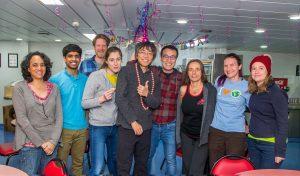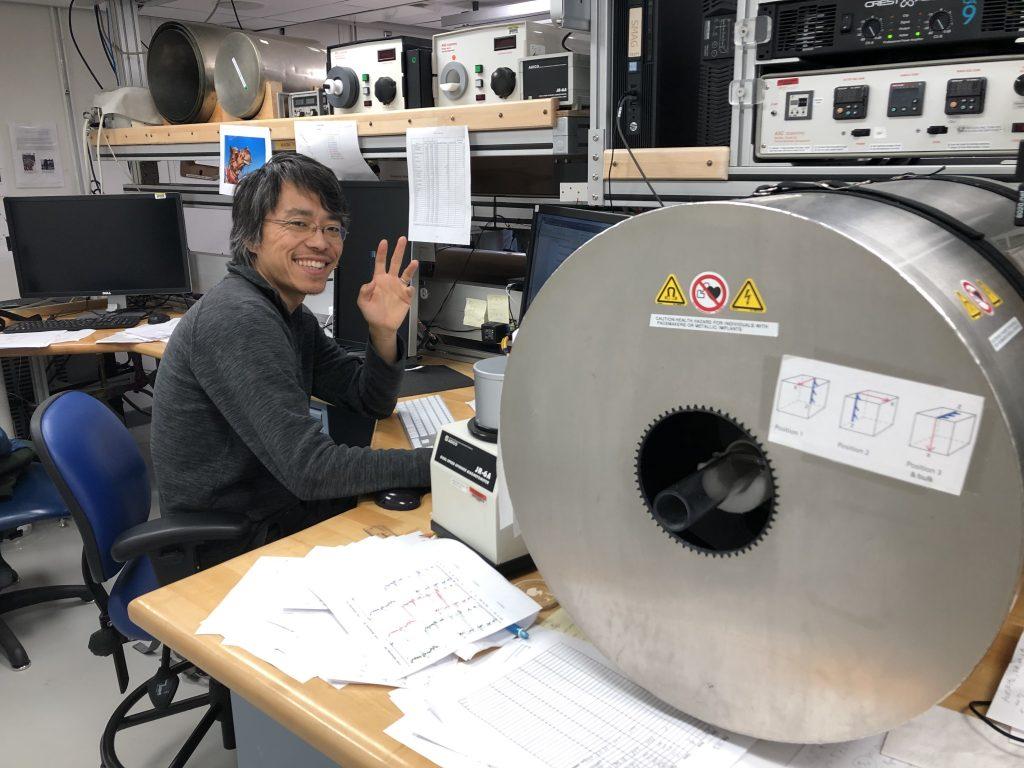
Career Spotlight: Paleomagnetist Xiangyu Zhao
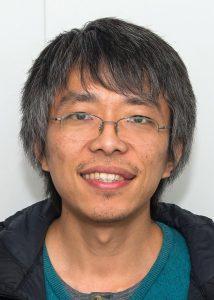
Xiangyu Zhao Interview
Please describe your job duties while on the JR. What will you be doing on a daily basis?
-
-
-
-
-
-
-
-
- As a paleomagnetist, my most important work onboard the JR is to measure the magnetic properties of the archive-half sections of each core retrieved. These data will be used to estimate the age of the sediment cores so that scientists know whether we achieve the materials we aim to get or not. The data is also fundamental for post-cruise research because it helps scientists to choose materials from the specific geological time intervals that they are interested in.
-
-
-
-
-
-
-
Describe one instrument or tool that is essential for you to do your job? Or a piece of equipment on the JR that is useful and why – what does it do?
-
-
-
-
-
-
-
-
- SRM (superconducting rock magnetometer) is the instrument for the measurement of NRM (natural remanent magnetization) of sediment cores. It reads the magnetic signals from the sediment indicating the magnetic reversal records. The magnetic reversal records are one of the main techniques used by scientists on board the JR to help estimate the age of the retrieved cores.
-
-
-
-
-
-
-
Why is your work (or research) important? What question are you trying to answer or how does your work/research help assist/advance scientific knowledge?
- Studying geoscience, in some sense, you become a time traveler. As a time traveler, it is critical to be able to track time, otherwise you will be probably end up in the middle of nowhere. Paleomagnetism is an important tool for dating continuous geological samples like marine sediment cores to guide geoscientists for the time travel. Beyond dating the geological samples, paleomagnetism studies the history of the geomagnetic field, which is sourced deep from the Earth’s outer core. Such information can provide us with valuable insights into the evolution of the Earth’s interior. This is a great advantage because the samples from the Earth’s interior are extremely rare, which is a limiting factor for other methods like geochemistry. It is as if the Earth’s core has been talking to an answering machine on the Earth’s surface (rocks or sediments) through magnetic field lines, and the conversations have been well recorded so that we can re-listen to them after thousands, millions even billions of years later.
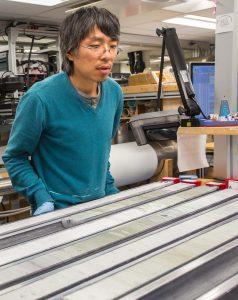
Why the ocean? What made you choose a career at sea or career that involves the ocean?
- I grew up in a coastal city. The sea is overwhelming to me. It was beautiful, powerful and also mysterious as a child. When there was a chance to study marine geoscience, it felt that I could finally reach an area that was unreachable to me. But, it still seems that there remains a lot to be understood about the ocean, which is challenging but also exciting.
What are you most excited about for this expedition and/or being on the JR?
- Meet new friends and do new research.
What are three things you think are needed for a successful expedition at sea? And Why!
- Experienced management team, collaborative scientific team, and, of course, friendly weather.
If you could answer one question about our Earth – what would it be and why?
- How geomagnetic reversal happens and its consequence. The geomagnetic field is impacting our lives, not only human but many creatures. For example, birds and whales can utilize the geomagnetic field to migrate over long distances. What would happen if the geomagnetic field reverses? How would they adapt to the change of directions accordingly? Scientists have documented many geomagnetic reversals in the geological records, however, its detailed behavior and its impact remain debated. For instance, it is unknown when the next geomagnetic reversal will happen. Hope that we can find the answer before it does.
What is your favorite sea creature and why?
- Whales. It is amazing that they can migrate a long distance by utilizing the geomagnetic field among other cues.
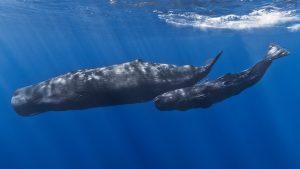
When did you know you wanted to pursue a career in science or an ocean science career?
- Since graduate school when I was influenced by my supervisors who are devoted to scientific research.
What do you personally hope to gain or experience while on EXP383?
- Collaboration!
What message do you have for anyone considering a career at sea or a career involving the ocean sciences?
- A long-lasting motivation is critical. Sea life is not romantic unless one is passionate about it.
What do you do back home when not on the JR?
- Have a break and then continue the research. A lot of new ideas are conceived onboard.
Do you get sea sick? If yes or sometimes, please describe how you cope with it.
- _√__No
The need for space comes in many forms. Which type of space, in general, is the most important to you? (Choose just one)
- ___Personal Space
- ___Creative Space
- ___Outdoor Space
- ___Emotional Space
- ___Physical Space
- ___Spiritual or Meditative
- ___Outer Space
- ___Community Space
- ___Quite Space
- ___Productive/Work Space
- _√__Digital/Virtual Space
- ___Public Space
- ___Inner Space
- ___Other:
Why that type of space? What makes it important to you and will it be available while on the JR?
- Sounds cool and futuristic. The technology may help people onboard from getting bored and thus keep working efficiently. I believe the virtual space will be applied not only to ships but also spaceships.
